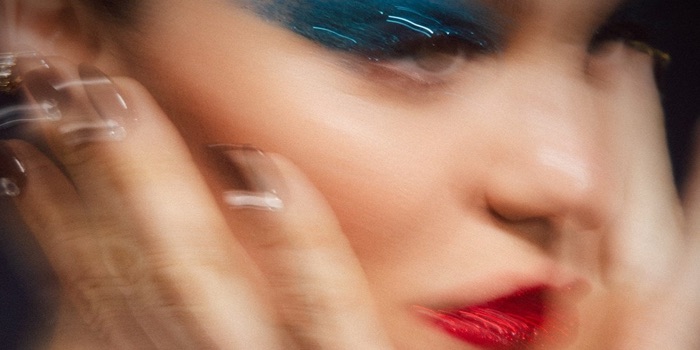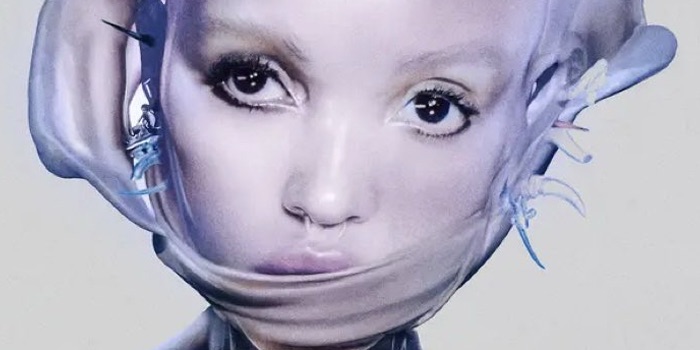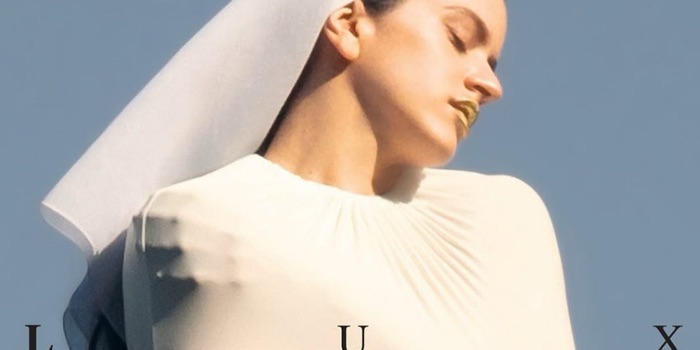
Lily Allen has been quiet music-wise for a while. In the years since her last album, No Shame, she has turned her focus toward acting, starring in theatre and television projects and she got married and moved across the Atlantic, settling in New York. Her marriage to actor David Harbour, once painted as a fairytale, quietly unravelled by 2024. West End Girl arrives in the aftermath. It is her first album in seven years and her most direct story to date. Written over ten days, it is a diary-like exploration of a marriage unraveling, the pain of being mistreated and the struggle to claw your way back.
The title track opens the album with a hopeful tone, evoking sweetness and lightness with its jovial production and strings. However, the narrative quickly takes a turn when Lily reveals she has landed the lead in a play, only to face the harsh reality that her husband’s first response is that she will have to audition. It’s a strange alternative to a congratulatory affirmation you would expect from your spouse that forms the cracks in their story. The tempo shifts, the mood sours, and a phone call forms the end of the song (heard only from Lily’s perspective, it’s her story after all) a call that sounds like bad news. The moment she hangs up, the world she’s built begins to collapse.
Ruminating picks up the fallout. Vocoder melts her voice as her thoughts spiral, replaying what she has just been told: he is sleeping with other women, he wants to be able to sleep around. “If it has to happen, baby do you want to know?” he asks, still trying to frame his infidelity as honesty. The production mirrors the chaos of her headspace. Sleepwalking follows, drained of romance, tracing the empty space between them while he plays mind games about why things have gone cold, providing an excuse for his transgressions. Then comes Tennis, where the truth fully lands. He has not just slept around as she has had to accept as per an “arrangement” but he has had a full on romantic relationship. The wordplay is sharp, but the tone is flat, exhausted. “Who the fuck is Madeline?” Lily demands, disbelief edged with finality. That question becomes the thread of Madeline, a song that brings the mistress into the story. The woman insists it is only sex, that she respects Lily, but there is a queasy sense of self-preservation in her words as the boundaries of their open arrangement have been breached and she’s defending him.
Relapse drifts in with a hazy, disoriented feel, capturing Lily’s puddled mind and the sensation of losing her footing. “The ground is gone beneath me / you pulled the safety net,” she sings, as distorted echoes of “I don’t need a drink” loop, reflecting her struggle to resist hitting the eject button on her journey with sobriety and her weighing up the consequences of falling back into destructive habits. It’s a true reflection of what the breakdown of her marriage did to her which makes it all the more cutting.

4chan Stan deepens the critique, seemingly interpolating Daft Punk’s Veridis Quo. The title of which, meaning “to what purpose,” and underlines the point with her track: she is asking him what any of this meant. If this was the reason behind the sample, it’s genius and shows how much thought has gone into the little details outside the lyrics. Another example is in Beg For Me where she samples the Lumidee’s Never Leave You (Uh Oooh, Uh Oooh) lyric “If you want me to stay, I’ll never leave”. The original lyric a promise of loyalty and devotion, but that sentiment has curdled here with Lily as the one left behind, while he moved on without remorse.
Nonmonogamummy recalls the bounce of Alright, Still, her wry humour flickering through as she tries to piece together what comes next. In Dallas Major, Lily adopts an alter ego, reclaiming herself in the aftermath of the split. “I hate it here,” she sighs though, alluding to appeasing the arrangement of her marriage and her quest for validation as a 40 year old with two teenage children. The track is an irresistible earworm despite is sad context. Then Fruityloop brings the story to its final chapter as a simple, direct and resolute closer. “Finally I see it’s not me, it’s you.” A quiet triumph in its call back to her second album title, a clean break and look to moving on to the next chapter.
Lyrically and thematically, West End Girl is her most cohesive work, this is Lily the storyteller. Production serves as a great tool to convey the story: everything is light at the beginning, but as the breakup story unfolds, the production becomes hazy, reflecting Lily’s spiralling thoughts. Rightfully scathing in her lyrics, after what she’s been through, Lily has never sounded so confident sharing her perspective. She’s always been brutally honest in her lyricism, but while her past work was renowned for its tongue-in-cheek and playfulness, there is such weight behind her words here. You feel her pain, understand what she’s gone through, and feel relief in the closure she seems to have found by the album’s end. A welcome comeback to music but very well could be Lily Allen’s magnum opus.
5/5






